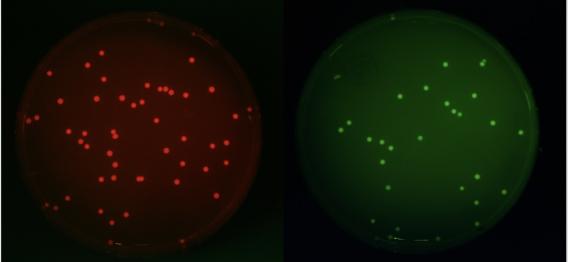We study bacterial colonization of the intestinal tract, to understand how both benign and pathological bacteria affect their environment. Our long-term goal is to treat intestinal diseases by genetically engineering bacteria in vivo.
Intestinal Biofilms
Biofilms are complex, dynamic systems in which bacteria adhere to a surface and secrete biopolymers to create a beneficial local environment. These structures can include more that one species of microbe; a single organism's contribution can benefit itself either directly or by affecting other microorganisms in the community.
We investigate the mechanisms of intestinal biofilm formation, its role in intestinal colonization, and its impact in disease states.
AIEC and Inflammatory Bowel Disease
Adherent-invasive E. coli, associated with Crohn’s disease, is distinct from other strains of E. coli that are unable to adhere. There are no specific genetic or molecular markers yet known for AIEC.
We will use a library of AIEC strains derived from patients to uncover the genetics and biochemistry of AIEC, and manipulate them to interfere with its ability to colonize the intestine.

Monitoring the colonization fitness of two strains of E. coli labeled with MCherry (red) and GFP (green) in stool samples.